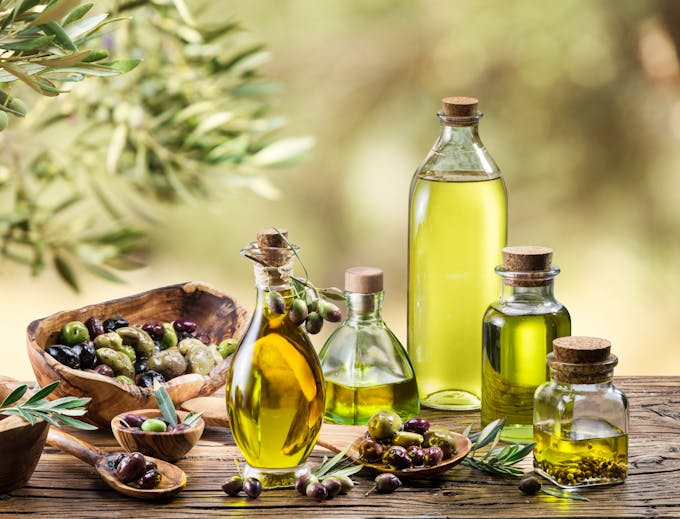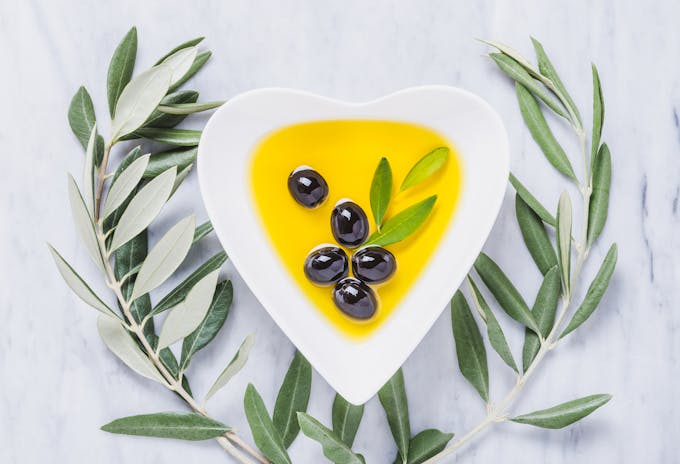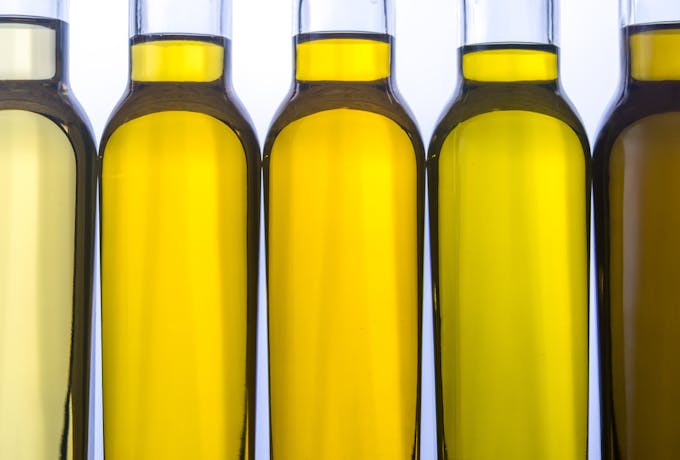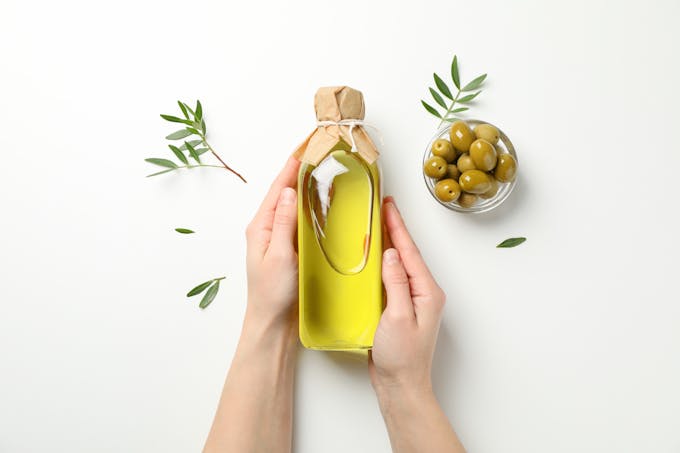Extra Virgin Olive Oil for Heart Health

25 Top Home Remedies That Really Work
Explore powerful home remedies for common health issues
Discover how to use everyday household ingredients to address minor ailments
Get practical tips for the safe and effective use of home remedies

25 Top Home Remedies That Really Work
Explore powerful home remedies for common health issues
Discover how to use everyday household ingredients to address minor ailments
Get practical tips for the safe and effective use of home remedies

25 Top Home Remedies That Really Work
Explore powerful home remedies for common health issues
Discover how to use everyday household ingredients to address minor ailments
Get practical tips for the safe and effective use of home remedies

25 Top Home Remedies That Really Work
Explore powerful home remedies for common health issues
Discover how to use everyday household ingredients to address minor ailments
Get practical tips for the safe and effective use of home remedies

25 Top Home Remedies That Really Work
Explore powerful home remedies for common health issues
Discover how to use everyday household ingredients to address minor ailments
Get practical tips for the safe and effective use of home remedies

25 Top Home Remedies That Really Work
Explore powerful home remedies for common health issues
Discover how to use everyday household ingredients to address minor ailments
Get practical tips for the safe and effective use of home remedies

25 Top Home Remedies That Really Work
Explore powerful home remedies for common health issues
Discover how to use everyday household ingredients to address minor ailments
Get practical tips for the safe and effective use of home remedies

25 Top Home Remedies That Really Work
Explore powerful home remedies for common health issues
Discover how to use everyday household ingredients to address minor ailments
Get practical tips for the safe and effective use of home remedies

25 Top Home Remedies That Really Work
Explore powerful home remedies for common health issues
Discover how to use everyday household ingredients to address minor ailments
Get practical tips for the safe and effective use of home remedies

25 Top Home Remedies That Really Work
Explore powerful home remedies for common health issues
Discover how to use everyday household ingredients to address minor ailments
Get practical tips for the safe and effective use of home remedies

25 Top Home Remedies That Really Work
Explore powerful home remedies for common health issues
Discover how to use everyday household ingredients to address minor ailments
Get practical tips for the safe and effective use of home remedies

25 Top Home Remedies That Really Work
Explore powerful home remedies for common health issues
Discover how to use everyday household ingredients to address minor ailments
Get practical tips for the safe and effective use of home remedies
Olive oil is one of the most researched plant oils, and studies have repeatedly confirmed that olive oil consumption is excellent for your health—but not all olive oil is created equal.
Extra virgin olive oil contains more nutrients than regular olive oil and provides the most health benefits.
Find out how to identify high-quality olive oil so you can better support your health and shop with confidence!

Is extra virgin olive oil healthy?
Extra virgin olive oil is one of the most healthy cooking oils. It’s minimally processed and contains more nutrients and antioxidants than regular or refined olive oil.
If you’re practicing a keto diet, extra virgin olive oil should be a staple ingredient on your keto food list.
Extra virgin olive oil is rich in heart-healthy fats, including monounsaturated fats and polyunsaturated fats, and contains vitamins E and K.
It’s not just the high amounts of healthy fats that make extra virgin olive oil a healthy choice. Extra virgin olive oil is an excellent source of antioxidants and polyphenols, including oleuropein and oleocanthal.
Research suggests that these polyphenols have potent anticancer and anti-inflammatory properties. Regularly consuming extra virgin olive oil may significantly lower your risk of developing cancer and heart disease.
Extra virgin olive oil nutrition facts
One tablespoon of extra virgin olive oil contains:
120 cal
14 g total fat
10 g monounsaturated fat
2 g polyunsaturated fat
2 g saturated fat
0 g carbs
0 g protein
Eight incredible olive oil health benefits
Because of its widespread use in Mediterranean countries, scientists are able to investigate the health benefits of extra virgin olive oil on a large scale and across many different cultures, traditions, and dietary patterns.
Scientific studies consistently confirm that a healthy diet, including extra virgin olive oil, supports your immune system, cardiovascular health, brain function, and blood pressure.
Watch the video above to learn more about extra virgin olive oil’s benefits for your heart health.
Let’s take a look at eight health benefits of olive oil.
1. Heart health
The combination of healthy fats and anti-inflammatory polyphenols makes extra virgin olive oil a heart-healthy superfood. It can support your cardiovascular system and lower your risk of heart disease.
Monounsaturated fatty acids and oleic acid in olive oil raise beneficial HDL cholesterol levels, which decreases the risk of arterial plaque formation, stroke, and heart attacks.
Oxidative stress and inflammation are directly linked to the development of heart disease. Extra virgin olive oil is rich in oleuropein and oleocanthal, potent antioxidants that reduce oxidative stress and lower inflammation. This explains why olive oil consumption is linked to a lower risk of heart disease.
Overall, consuming olive oil regularly is great for your cardiovascular health. It lowers your risk of high blood pressure and promotes healthy blood vessels.
2. Anti-inflammatory
Olive oil has potent anti-inflammatory properties. Olive oil might be the next ibuprofen. In fact, regular olive oil consumption has been found to be as effective in lowering chronic inflammation as taking ibuprofen.
Oleic acid, the main fatty acid in olive oil, lowers levels of C-reactive protein, a substance your liver produces in response to inflammation. Healthy C-reactive protein levels are linked to overall health and lower risk of inflammatory diseases, including Alzheimer's disease and asthma.
Oleocanthal protects your cells from oxidative stress and lowers inflammation by directly preventing the production of proinflammatory substances in your body.
Olive oil's anti-inflammatory properties are especially beneficial in lowering symptoms of rheumatoid arthritis, a chronic inflammatory condition resulting in deformed and painful joints.

3. Anticancer
Compared to other dietary patterns, a diet rich in olive oil has several potential health benefits, including reduced cancer risk.
Oleocanthal in olive oil is believed to prevent the formation of cancerous cells and to initiate apoptosis—meaning it triggers cell death in tissue that may become cancerous.
Frequent olive oil consumption is linked to a lower risk of breast cancer, urinary tract cancer, and certain cancers of the digestive system.
4. Antimicrobial
Extra virgin olive oil supports your immune system and helps to kill harmful bacteria.
It's particularly effective in protecting you from H-pylori, a bacterium that causes stomach ulcers and may increase your risk of developing gastrointestinal cancer.
5. Type 2 diabetes
The polyphenols in olive oil reduce your risk of developing diabetes and metabolic syndrome.
Polyphenols help improve the sensitivity of your cells to the hormone insulin, which is essential for healthy blood sugar levels.
6. Brain health
The buildup of protein plaques in the brain is linked to neurodegenerative diseases, including Alzheimer's and dementia.
Extra virgin olive oil can prevent the formation of these plaques, protecting your cognitive health and brain function causing an anti-aging effect.
7. Bone health
Extra virgin olive oil supports healthy bones, lowering your risk of developing osteoporosis.
Polyphenols in olive oil stimulate bone cell growth and maintain optimal calcium levels in your bone matrix, resulting in strong and healthy bones.
8. Weight loss
Including extra virgin olive oil in your diet can prevent weight gain and help you maintain a healthy waistline.
Olive oil is a rich source of medium-chain triglycerides (MCTs). MCTs are easily digested and stimulate your metabolism to utilize fat stores as a fuel source which promotes weight loss.

How to choose the best olive oil
To get the most health benefits from olive oil, it’s essential that you choose the right type.
Olive oil is available in three grades that differ in taste and nutritional value:
Extra virgin olive oil
Refined olive oil
Pure olive oil
Extra virgin olive oil is the most nutritious and contains the highest amounts of disease-fighting polyphenols. It’s made by mechanically pressing ripe olives to extract their oil without using heat or chemical solvents. Extra virgin olive oil has a distinct olive flavor with a hint of sharpness.
In contrast, refined olive oil is made by adding a chemical solvent to dry olive pulp, a by-product of virgin olive oil production. Refined olive oil has less nutritional value and contains fewer health-promoting polyphenols than extra virgin olive oils.
Pure olive oil, or regular olive oil, typically is a mix of cold-pressed and chemically extracted olive oils. It doesn’t have extra virgin olive oil’s distinct flavor and contains significantly fewer polyphenols.
To get the best quality oil, choose extra virgin olive oil produced and bottled in a Mediterranean country such as Spain, Italy, or Greece. These countries have strict industry standards and provide extra virgin olive oil certifications to ensure and maintain the highest quality.

Key takeaways
Extra virgin olive oil is an exceptionally nutritious oil with many health benefits. It’s rich in heart-healthy fats and contains high amounts of polyphenols, including oleuropein and oleocanthal.
Research confirms time and time again that extra virgin olive oil is one of the best oils you can choose to promote a healthy body. Extra virgin olive oil’s unique combination of healthy fatty acids and polyphenols supports heart health and cognitive health, lowers your risk of certain cancers, and protects your body from harmful bacteria.
Choose certified extra virgin olive oil produced and bottled in a Mediterranean country to benefit from the highest quality oil with the best nutritional value.
FAQs
1. Is extra virgin olive oil better than normal olive oil?
Yes, extra virgin olive oil is better for your health than normal, regular olive oil.
Extra virgin olive oil is produced without heat or chemical solvents and is a rich source of disease-fighting polyphenols and heart-healthy monounsaturated fats.
Although refined olive oil contains the same fat as extra virgin olive oil, it has significantly fewer health-promoting polyphenols.
2. Is extra virgin olive oil good for my health?
Yes, extra virgin olive oil is an excellent choice for your health. Heart-healthy monounsaturated fats in extra virgin olive oil are linked to healthy blood cholesterol levels and reduced risk of heart disease.
Extra virgin olive oil has potent anti-inflammatory properties that protect your body from inflammation and oxidative stress. Daily extra virgin olive oil consumption
lowers your risk of certain cancers and neurodegenerative diseases, including Alzheimer's and dementia.
The polyphenols oleuropein and oleocanthal in extra virgin olive oil support bone health and blood sugar regulation and can alleviate symptoms of chronic inflammatory conditions, including rheumatoid arthritis.
3. Can I have olive oil every day?
Yes, you can have olive oil daily.
Olive oil is a daily staple of the Mediterranean diet. Studies show that frequent olive oil intake supports your health, lowers inflammation, and reduces your risk of cancer, dementia, and heart disease.
4. How much olive oil can I have per day?
Consuming two to four ounces of olive oil daily is linked to healthy blood cholesterol, lower inflammation, and a reduced risk of developing inflammatory conditions, including heart disease, cancer, neurodegenerative diseases, and asthma.
5. Can you cook with olive oil?
Yes, olive oil is an excellent cooking oil. Extra virgin olive oil's distinct flavor works well in dips and dressings and adds depth to most vegetable dishes.
Extra virgin olive oil has a smoke point of around 375° Fahrenheit, meaning that you can safely heat it up to this temperature, making it ideal for baking, sauteing, and stir-frying.
For high-heat cooking methods, including broiling, grilling, and pan-frying, choose refined olive oil, which has a higher smoke point of around 450° Fahrenheit.
6. Will olive oil raise my cholesterol?
Olive oil is cholesterol free and won't raise your cholesterol. In fact, olive oil is rich in monounsaturated fats that raise heart-healthy HDL cholesterol, resulting in healthy blood cholesterol levels.
7. What is the healthiest oil?
Olive oil, coconut oil, fish oil, and avocado oil are healthy choices that promote well-being. However, extra virgin olive oil contains more antioxidants and polyphenols than other oils.
Polyphenols have been studied extensively and are implicated in a wide range of health benefits. They help reduce the risk of cancer and heart disease, improve bone and cognitive health, and lower inflammation.
8. Is olive oil good for your liver?
Yes, research found that extra virgin olive oil has several liver protective properties. The high amounts of oleic acid and polyphenols in extra virgin olive oil prevent liver damage by lowering inflammation and oxidative stress and supporting healthy liver cell functioning.
Up Next:
Previous blog
Good Bacteria Keep Candida, Fungus and Yeast in CheckNext blog
Your Second Brain Is in Your Gut
Popular
08/21/2024
47K views
05/22/2024
41.2K views
11/18/2024
244.3K views
03/18/2024
11/21/2022




